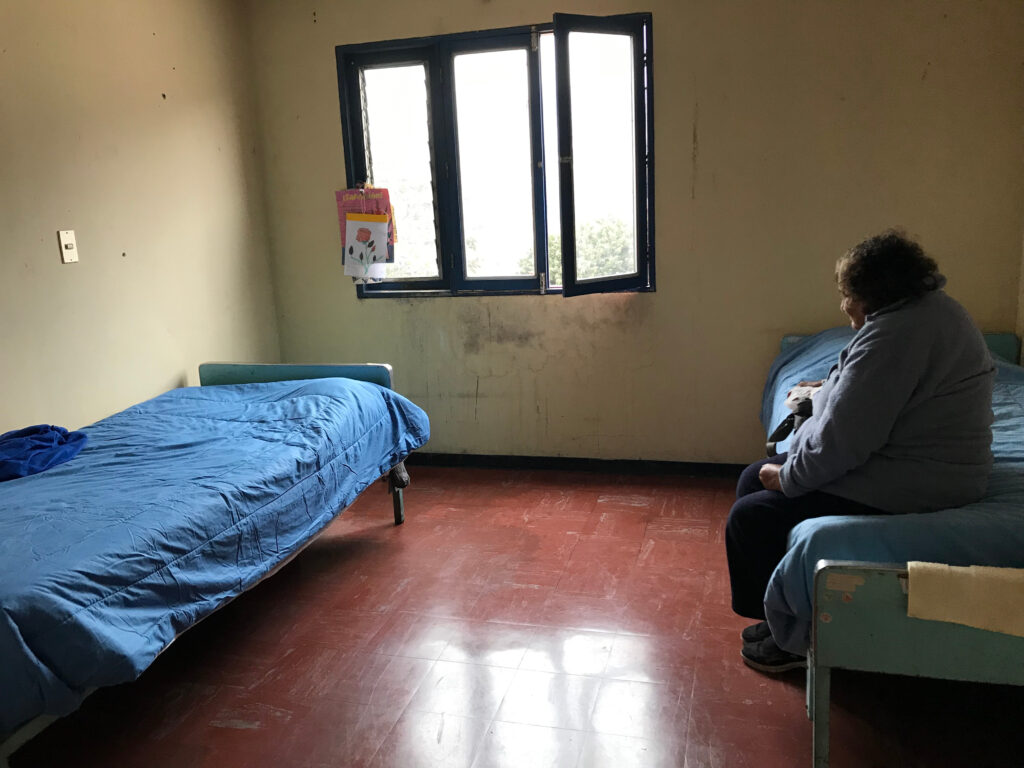What It’s Like to Grow Old on the Margins
As we ate breakfast in her room at La Merced shelter, Anita (a pseudonym) described her plight and that of her fellow residents: “You know, Magdalena? We have come to die here. There is no possibility for a better life within these walls. It’s all death. We are trash, and nobody wants us.”
Anita’s words hit me emotionally. It was my second year of field research at La Merced, one of 92 long-term elder care facilities in Lima that are accredited by the Peruvian Ministry of Women and Vulnerable Populations. Older adults who often lack family networks and economic security are forced to endure their final years at the facility amid broken windows, withered gardens, and cracked floors soiled with urine. These dehumanizing institutions are filled with the ache of abandonment, the pain of loss, and the deprivation of affection that makes life for these people nearly unbearable.
As in most of the world, people in Peru are living longer, and older adults currently make up around 13 percent of the population. But efforts to provide appropriate services to this growing group are woefully deficient due to weak public policies, inadequate distribution of the national budget, institutional corruption, and the lasting impacts of the COVID-19 pandemic.
The pandemic highlighted the neglect under which countless older adults live around the globe. Many who are growing old in precarious socioeconomic circumstances lack power and a voice. Under a capitalist world order that often characterizes them as a burden to the economy, many marginalized elders are effectively treated as nonliving beings and are left to die both biologically and socially.
“This is the place where they deposit us as if we were useless, expired, not being able to offer anything to society,” Anita told me of her life at La Merced. “We live in this institution devoid of connection, hope, and support. Who cares if a few poor older adults in places such as this one are dying alone and abandoned? The world, our society, even our children have turned their backs away from us.”
The above video—which I filmed during my field research at La Merced from 2017 to 2019—shows how some of Lima’s poor older adults struggle to hold on to life and give meaning to their aging experiences as they await their deaths. I hope the testimony in this short film helps elucidate the ways societies are turning their backs on older people.




























